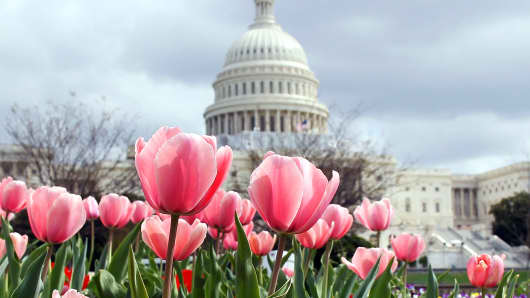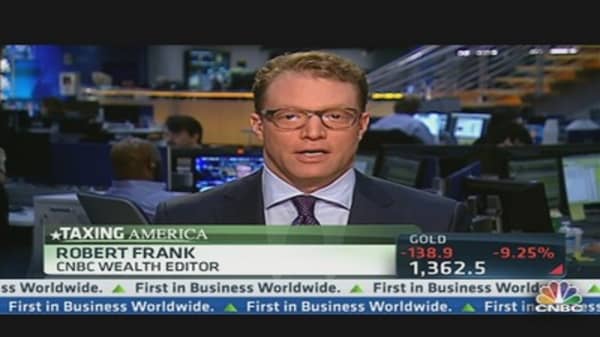The federal government is expecting to collect around $2.7 trillion in tax receipts this fiscal year.
That would be an all-time record, outpacing the 2007 pre-crisis peak of $2.5 trillion. But some economists are predicting an "April surprise," with much higher than expected revenues pouring into federal coffers because of outsized gains by the wealthy in 2012.
If those predictions come true, the revenues from the rich could help ease the budget pressures in Washington, while also ramping up the debate over additional taxes on the wealthy.
The Congressional Budget Office is expecting tax receipts of $2.708 trillion in 2013. President Obama is expecting around $2.712 trillion.
(Read more: IRS Audit Team Nabs One in Eight High Earners)
But many wealthy taxpayers shifted income they'd normally haven taken in 2013 into the fourth quarter of 2012 to avoid anticipated tax hikes in the new year, which in fact came to pass thanks to the "fiscal cliff" deal: The top income tax rate went to 39.6 percent from 35 percent on income over $400,000. Taxes on capital gains went to 20 percent from 15 percent, and investment income is also subject to new health-care levies.
Some wealthy taxpayers sold stock, homes and businesses in 2012 to avoid the tax hikes. Companies also accelerated income and dividends to move income in 2012.





